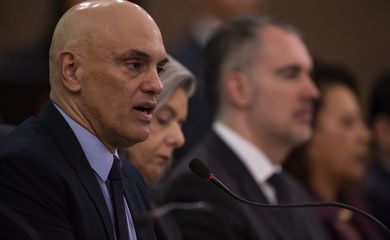Nine out of ten Brazilians admit to having believed fake news

Nearly nine out of ten Brazilians admit to having believed in fake news, according to a survey carried out by the Locomotiva Institute, obtained exclusively by Agência Brasil. In it, 26 percent of Brazilians admit to having believed in fake news. Even so, 62 percent trust their own ability to differentiate between false and true information in a piece of content.

Regarding the content of the fake news they believed, 64 percent was about products being sold, 63 percent concerned proposals in electoral campaigns, 62 percent dealt with public policies—like vaccination—and 62 percent was about scandals involving politicians. There were also 57 percent who said they had believed untrue content about the economy and 51 percent in fake news involving public security and the prison system.
The institute interviewed 1,032 people aged 18 or over between February 15 and 20. In the opinion of 65 percent of respondents, fake news is distributed with the help of robots and artificial intelligence. Out of every ten people, eight recognize there are groups and people paid to produce and disseminate fake news.
The greatest risk of disinformation for 26 percent of the people is the election of bad politicians, while 22 percent believe that the greatest danger is damaging someone’s reputation. Sixteen percent consider the greatest problem to be people’s increased fears surrounding their own security. A further 12 percent see the greatest risk as damaging health care.
Naivety and shame
Being fooled by fake news makes 35 percent of people feel naive, 31 percent feel angry, and 22 percent feel ashamed.
A quarter of the people say they have been accused of spreading false information by people who have a different worldview.
The president of the Locomotiva Institute, Renato Meirelles, advocates educational measures as a way of combating the spread of untruthful content.
“To tackle this issue, public institutions must face the challenge of building strategies to promote media education and rigorous fact checking in order to strengthen the country’s communication and ensure that the people receive accurate and reliable information,” he stated.



